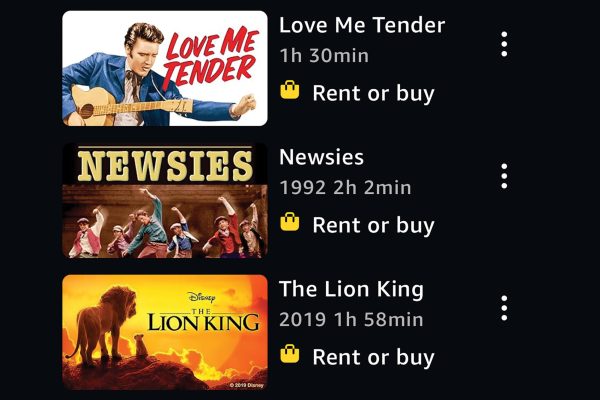On a high note
Broadway show sheds light on important issues

photo from creative commons
November 14, 2017
It is with the utmost confidence I say that anyone sitting down to watch the 2016 rendition of “Falsettos” is signing an unofficial contract to endure a wild roller coaster of emotion. This Broadway musical, complete with both laugh-out-loud humor and tear jerker scenes, is brought to life by four unlikely lovers, a mother on the verge of a breakdown, a psychiatrist and a boy trying to cope with a dysfunctional family dynamic.
PBS recently aired the award-winning show Oct. 27 and kept the show on their website for viewers to watch for free through Nov. 10. It was here that I was exposed to this magnificent production.
The show takes place in New York from 1979 to 1981 and centers around a group of neurotic Jews: Marvin (Christian Borle), his ex-wife, Trina (Stephanie J. Block), their son, Jason (Anthony Rosenthal), Marvin’s new male lover, Whizzer (Andrew Rannells), their psychiatrist, Mendel (Brandon Uranowitz) and the next-door lesbian lovers, Charlotte (Tracie Thoms) and Cordelia (Betsy Wolfe).
“Falsettos” relies solely on the talent and ability of the actors and actresses to convey emotion onstage as the set is minimal, consisting only of a building block cube that is broken down like puzzle pieces to form needed set pieces throughout the show.
The show confronts many issues, most prominently the acceptance of LGBT relationships in society; the viewer gets a glimpse into relationships between both two men and two women in love with each other.
— Colton Johnson
From the opening scene, the viewer is quickly immersed in the energetic, upbeat music of the show and drawn into the lives of the characters, each of them related in some way to Marvin. As the show progresses, we begin to understand his inner conflict through a solo that tells his indecisiveness of wanting a tight-knit family and wanting a passionate, loving relationship with Whizzer. Seeing as he “wants it all,” he decides to merge the two.
While this seems to be the best decision for himself, it creates tension within the other characters, especially his wife, who delivers a humorous yet uncannily relatable solo declaring that she is breaking down. Amongst all of this, their son is faced with trying to cope with his chaotic family, who always seems to be making his decisions for him. And even being so young, Jason delivers captivating performances as seen in a duet he sings with his father.
The show confronts many issues, most prominently the acceptance of LGBT relationships in society; the viewer gets a glimpse into relationships between both two men and two women in love with each other. This topic was an even touchier subject regarding the time period of the show.
The cast answers the simple (or not so simple) question: What is #Falsettos about?https://t.co/c4UJOmuMhP
— Falsettos National Tour (@FalsettosBway) July 11, 2017
While it tests the idea of family dynamic and the meaning and importance of love, the plotline would be incomplete without the terrible introduction of AIDS in Act Two. It was all good and well, and then there was an Act Two. The dreaded Act Two, meant to rip one’s heart out and leave them lonely and ugly crying.
The AIDS epidemic hit America hard in 1981, mostly among young gay men living in Los Angeles, New York City or San Francisco. Dr. Charlotte alludes to this epidemic in a foreshadowing solo where she tells that “something bad is happening.”
The viewer spends the show getting close to the lovable characters, for while they see them in their worst moments of jealousy, they also see them in their beautiful moments of love. It humanizes each character and gives one a deeper understanding of their motivation. This is apparent even in Mendel, who seems to be nothing more than comic relief, as we see his struggles for happiness in a job he really is not that great at.
I did my best not to spoil the plot. This is merely dipping my toe into this masterpiece of a musical. If at all possible, take the time to watch this. It is eye-opening, heart-wrenching and will take the people watching on a journey to understand true love and the importance of sacrifice and compromise for loved ones.



















